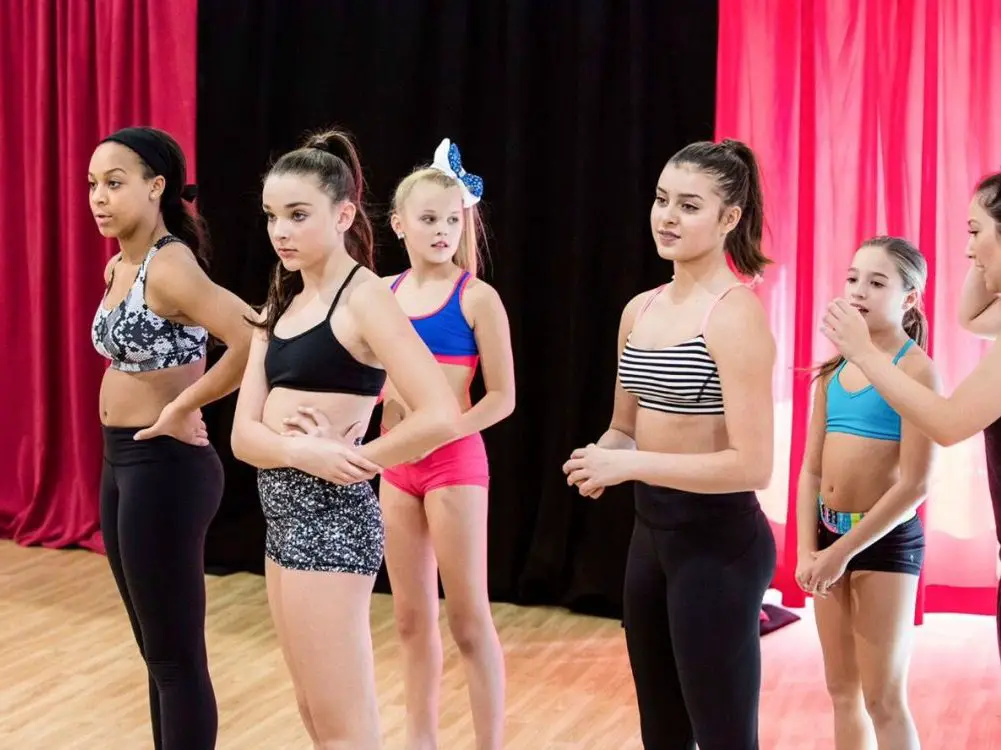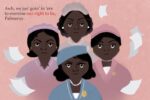“Dance Moms,” the cult classic Lifetime reality show, has somehow never declined in cultural relevance since its inception in 2011. The premise: A group of young, highly trained dancers work with the harsh but lauded coach, Abby Lee Miller (affectionately known by the dancers as “Miss Abby”), all under the watchful gazes of their extremely controlling and highly dramatic moms. Each episode ends with a dance competition and, more often than not, yelling and tears. It’s truly something to behold.
The original fan base of “Dance Moms” has grown up, but the show continues to garner attention both on Lifetime and on TikTok, where fans love to recreate ridiculous moments and impersonate the larger-than-life reality TV characters. When my younger sister, who is as well-versed in TikTok as they come, noticed all the “Dance Moms” trends popping up on the app, the two of us decided it was time for a rewatch.
As a college student now, I had a pretty different experience watching “Dance Moms” the second time around. Where my 12-year-old brain found the dancers and their sport the most compelling part of the show, this 19-year-old version of me is more interested in the complex dynamics between the moms, the girls and Miller. And part of me began to wonder: Is “Dance Moms,” in some ways, a feminist TV show?
It might seem ridiculous, but there are some key components of “Dance Moms” that really do speak to female empowerment.
Quick disclaimer: These points are based off of a rewatch of most of Seasons 2 and 3. They by no means represent a comprehensive look at the entire “Dance Moms” library.
Without further ado, here is the case for “Dance Moms” as a feminist show — and the reasons it ultimately falls short.
1. The show passes the Bechdel test with flying colors.
The Bechdel test is named for Alison Bechdel, an American cartoonist who introduced the test criteria in her comic strip, “Dykes to Watch Out For.” It assesses the representation of women in fiction.
To pass the Bechdel test, you must answer three questions affirmatively: Does the fiction have at least two women in it? Do they talk to each other? Do they talk to each other about something other than a man?
“Dance Moms” unequivocally passes the Bechdel test because, well, there are hardly any men to be found in the entire show.
The arch-nemesis of Miller’s Abby Lee Dance Company, Candy Apples Dance Center, brings in occasional male dancers along with their dance dads, but they rarely become central characters in the plot.
Both the dancers and their moms talk about nearly everything except men. They really only mention their fathers, husbands or partners when Abby tries to take a dig at their relationships or in the episode when Melissa gets married without telling any of the other moms. To my knowledge, the fathers of Miller’s competition team never appear on screen.
Bechdel test complete.
2. “Dance Moms” focuses on female empowerment.
When it comes to dance instruction on “Dance Moms,” there’s not a lot of leniency. Miller coaches the girls unsympathetically, knowing that her intensity will prepare her dancers to be professionals in an industry that will chew them up and spit them out.
Abby works to prepare the girls to advocate for themselves, and she is mostly successful. Although when she made Paige confront Cathy and her guest coach Anthony after they critiqued Paige’s performance from the audience, it was admittedly a little much.
“Dance Moms” is a celebration of a sport that combines femininity with extreme athleticism and power, showing that beauty, grace and strength can coexist — with girls and women positioned at the intersection.
Not for one minute does “Dance Moms” portray dance as easy; it showcases the frustrations and all the long hours of hard work that go into each performance.
3. The moms are fierce.
Speaking of femininity coupled with strength, the “Dance Moms” moms themselves are a force to be reckoned with. Though there are times when the reality TV show lens seems to gaslight the moms for their strong emotions and frames them as hysterical, for the most part, the mothers exist in a space that honors their emotions and passion for dance, the sport they have dedicated their lives to.
Rather than discrediting the women for experiencing feelings, it is the fiery emotions of the dance moms that make them so memorable and quotable.
The show also portrays some lovely moments between the mothers and their daughters, especially Christie and Chloe, who often convene in the corner for a quick pep talk before competitions. Even when the moms are at their angriest, the bonds between female-identifying people are the cornerstone of “Dance Moms.”
4. The whole thing with the boys?
This one might require a bit of background knowledge. No reality TV show is complete without a good rivalry, right? In “Dance Moms,” the rivalry exists between two dance studios — the Abby Lee Dance Company and the Candy Apples Dance Center.
The owner of Candy Apples, Cathy Nesbitt-Stein, used to attend Miller’s dance studio with her daughter, Vivi-Anne, but she eventually defected and decided to start her own studio. However, she clearly has very limited dance knowledge, so she constantly brings in outside choreographers and dancers to compete against Miller.
Yes, there’s no subtlety to this plot device, but that doesn’t detract from the drama that ensues. Any time Cathy’s boys beat Miller’s girls, Miller is quick to point out that judges tend to give boys higher scores to encourage them to continue dancing.
Is this theory rooted in fact? As viewers, we have no idea. But the important part is that the girls learn to rise above prejudice and favoritism toward men in terms of the judging of their competitions, which is an essential feminist life lesson. Rather than paying attention to what the boys are doing, the girls focus on honing their superior dance skills to dominate at the competitions.
On top of the drama with the boys, we have the whole thing with their dads. Whereas Miller’s dance moms are generally kind and caring beneath the insults and competitiveness, some of the dance dads are genuinely nasty.
Even though the moms spend the vast majority of every episode criticizing Miller and her methods, they are always quick to defend her when the dads try to engage or badmouth her. It’s female solidarity at its finest.
Okay, I buy it. But is “Dance Moms” an intersectional feminist undertaking?
In some ways, “Dance Moms” has all the makings of an excellent bit of feminist television, but I can’t, in good conscience, say that it can really be classified as a feminist show.
The main issue with “Dance Moms” is its lack of intersectionality, which journalist Alia E. Dastagir defined in a 2017 USA Today article as “the understanding of how women’s overlapping identities — including race, class, ethnicity, religion and sexual orientation — impact the way they experience oppression and discrimination.”
I can’t forget about Season 2 Episode 24, “New Girl in Town,” in which new dancer Nicaya and her mother, Kaya, came to the studio, only to be openly rejected by the moms because Kaya was Black and lesbian.
Even Holly, the only Black dance mom, did not feel comfortable defending Kaya, likely for fear of the wrath of the other moms. To her credit, Holly did not join in on questioning Nicaya’s credentials.
In fact, throughout the show, Holly and Nia are tokenized by the other moms for their race. Holly becomes the voice of all Black people for many of the mothers, while the majority of Nia’s solo dances are hip-hop style and revolve around her “sassy” persona, which Nia seems to enjoy on stage but does not actually embody in her day-to-day personality.
Nia only gets to explore lyrical and contemporary dance in the group numbers, where she is often cast in the back.
Miller makes a good faith effort to introduce her dancers to LGBTQ+ individuals and experiences in dance during several episodes, notably Season 3, Episode 11, “Camouflaged Maneuvers.” However, she seems more focused on using “being gay” as a theme that she can work into a performance rather than a genuine educational moment or an identity with which some of her dancers might identify.
The moms are clearly accepting on the surface but do not seem super comfortable with queerness as a concept.
So, while some aspects of “Dance Moms” are delightfully feminist, the show fails to embrace or portray any kind of intersectional feminism that might earn it the qualification of a feminist show. We still stan, of course, but with a critical eye.

















